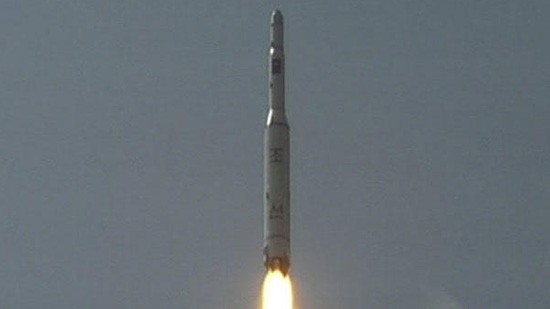(VOVworld) - The Democratic People’s Republic of Korea on Wednesday sent into orbit an observation satellite called Kwangmyungsang-3. The launch surprised the international community.
 |
| (photo: CSMonitor) |
DPRK’s rocket launch on Wednesday surprised the public because there had been repeated suggestions that it would postpone the test until December 29. North Korea’s Committee for Space Technology said engineers had identified a technical problem with the rocket’s first stage engine. The US – Korean Institute at John Hopkins University predicted the launch would be suspended due to heavy snow. Meanwhile, South Korea’s Yonhap news agency said there might be delays due to technical problems. Another source said Pyongyang was starting to dismantle the rocket to investigate the technical problems. But, the prediction proved wrong.
After the launch, many countries and the UN Security Council condemned Pyongyang. The UN said the launch was a violation of UN resolutions on anti-ballistic missile tests and a highly provocative act that threatened regional security. Chinese spokesman Hong Lei said China regretted the launch, but he urged a prudent and moderate international reaction to avoid an escalation of tension on the Korean peninsula. The Russian Foreign Ministry called on other countries to avoid worsening the situation.
Meanwhile, Pyongyang said the successful launch was a scientific and economic breakthrough. A spokesperson said the launch was for peaceful purposes under a scientific and technological development plan to improve the economy and people’s living conditions. He added that the right to use space for peaceful purposes is recognized by international law. Pyongyang will continue to exercise its legitimate right to launch satellites and urged the international community to remain calm.
Analysts say being able to place a satellite in orbit means North Korea has the technology to launch a ballistic to targeted sites. North Korea has at last succeeded after failed tests in 1998, 2006, 2009, and April 2012.
In contrast to North Korea’s cheerfulness, observers are worried that this success will have a negative effect on efforts to create lasting peace on the Korean peninsula.
Hong Van